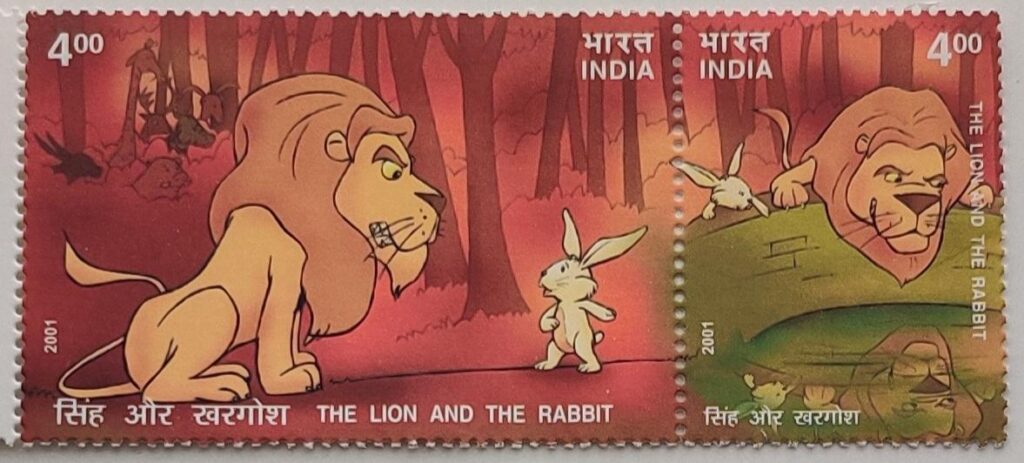
Once upon a time, there was a beautiful jungle in which lived a big, lazy lion.
Being the king of the jungle, the lion called all the animals and ordered them, “Everyday one of you should come by yourself as my prey; otherwise, I will destroy the whole jungle.”
The animals were too scared of the lion and agreed to obey his order. They planned to go to him one by one everyday as his meal.
The lazy lion was happy with his easy prey. Days went by.
One day, it was the turn of the rabbits. A little rabbit volunteered to go to the lion’s cage.
The little rabbit reached the lion’s den very late. The angry lion roared at the little rabbit and asked, “Why are you late?”
The little rabbit replied, “I met another lion on the way, which is bigger than you. It threatened to eat me.”
The lion angrily asked the rabbit, “Do you know where he lives?”
The rabbit replied ‘‘Yes’’ and asked the king to follow him.
When they reached an old well, the rabbit said to the king, “That lion lives in this well.”
The foolish lion peeped into the well and mistook his own reflection to be another lion, and roared loudly.
Hearing the echo of his own roar coming from the depths of the well, the lion got angry and jumped into the well and drowned.
That was the end of the lion, and all the animals lived happily in the jungle.
This children’s story is from the Panchatantra (meaning “Five Treatises” in Sanskrit);
it is a collection of five volumes of moral stories written by a teacher Vishnu Sarma to help instruct the princes on different facets of kinghood.
The five volumes together serve as a manual for a prospective king, to help him in deciding how to rule, how to choose his friends and ministers, how to conduct himself in daily life, etc.
These stories, dated to about 200 BCE, are among the most widely known in the world, going by many names in many cultures. There is a version of Panchatantra in nearly every major language of India, and in addition there are 200 versions of the text in more than 50 languages around the world.
